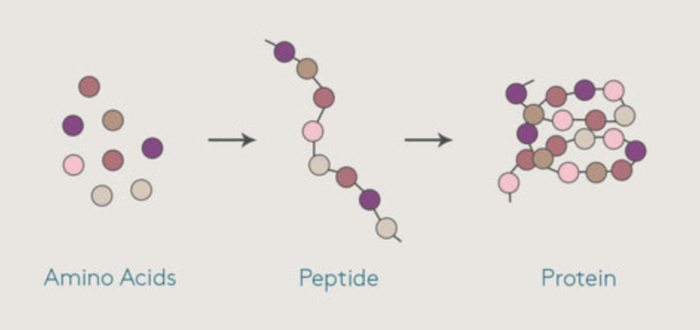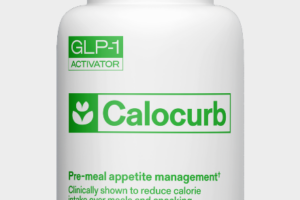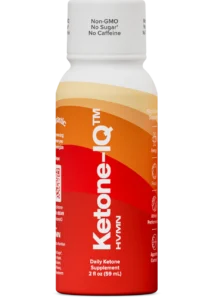May 21, 2024
Interested in getting bigger, stronger, sexier, and faster with age, and you’re already engaged in smart strategies like lifting weights, eating adequate protein, engaging in low-level physical activity all day long, and avoiding inflammatory foods?
If you feel like you've tried everything but still aren't satisfied with your results, peptides can be a game-changing addition to your arsenal by rapidly aiding in your pursuit of noticeable muscle growth and fat loss.

Peptides, in essence, are short chains of amino acids, the building blocks of proteins, which play vital roles in numerous biological processes. They can be administered in various forms, including oral supplements, injectables, or intranasal formulations. Within the realm of medical research, peptides have emerged as intriguing candidates in fields such as hormone replacement therapy, immunology, and drug development, promising groundbreaking advancements in health and medicine.
Among the most celebrated peptide categories are glucagon-like peptide-1 (GLP-1) agonists like semaglutide (marketed as Ozempic® and Wegovy®) and liraglutide (known as Victoza® and Saxenda®). Originally designed as diabetes drugs, these peptides mimic the effects of GLP-1, a hormone normally released when you eat food (to discover more about GLP-1 production, you can check out my recent podcast with Dr. Colleen Cutcliffe). GLP-1 stimulates the release of insulin, inhibits the release of glucagon, and slows down gastric motility and the passage of food through the gut, which signals satiety and makes you fuller for longer.
However, before you get too deep into this article, I want to warn you — I'm not here to try to sell you on taking GLP-1 agonists. In fact, when it comes to these specific peptides, I have a lot of serious concerns, which I've spoken about extensively here, here, and here.
So if you're considering taking GLP-1 agonists, read this article first.
There are other peptides and peptide stacks that don't come with a laundry list of side effects that often accompany Ozempic-like drugs, such as nausea, vomiting, diarrhea, abdominal pain, constipation, decreased appetite, depression, or the potential chance of pancreatitis, thyroid tumors, and kidney problems.
While GLP-1 agonists like Ozempic have become all the rage among Hollywood celebrities, fashion models, Silicon Valley entrepreneurs, and even your next-door neighbors, most people don't know there are alternative peptides and peptide stacks (plus natural methods) for weight loss and muscle gain that are far safer for your body. In this article, you'll explore these healthier options for weight loss (and muscle growth), and I'll provide an in-depth explanation of why I'm not a fan of GLP-1 agonists. Plus, if you stay with me until the end, you'll gain free access to two invaluable resources that will deepen your knowledge as you delve further into the world of peptides.
Ready to take your fitness journey to the next level?
Let's dive in so you can start revolutionizing your approach to health and wellness with the best peptides and peptide stacks for weight loss and muscle gain!
Do GLP-1 Agonists Like Ozempic Actually Work?
If you're reading this article to find out if peptides like GLP-1 agonists can help you lose weight, the answer is: absolutely…
…and probably more effectively than just about any weight loss drug that has ever been developed. Out of all the weight loss drugs the industry has pushed, tested, and tried, GLP-1 agonists actually help people lose weight at rates of up to 15% body fat loss over a couple of years, compared to just 2% loss in placebos. That’s massive, especially when you consider that they can also reduce blood pressure, reduce major cardiovascular event risks, and improve blood sugar balance.
But as the old saying goes, “If something seems too good to be true, it probably is.”
For example, I first realized the power of GLP-1 agonists (and their side effects) when I went out to dinner with a foodie friend who had just dosed up that week.
He sat there mildly nauseous as most of his favorite foods came out to the table and ultimately nibbled on half a deviled egg during an entire three-hour dinner, satisfied by nothing more than a couple of glasses of water.
Health Risks Associated With GLP-1 Agonists
Sure, the results of GLP-1 agonists may appear impressive at first glance, but upon closer examination, the benefits don't always outweigh the drawbacks. For instance, once you begin using them, you may find yourself committed to a lifetime regimen. Studies have shown that those who eventually get off the drug quickly regain most of their weight and lose almost all of the other health benefits (blood sugar, blood lipids, blood pressure, etc.).
Next, GLP-1 agonists can increase adipogenesis — the creation of new fat cells. This process normally occurs in childhood and is a major reason why childhood obesity is so hard to overcome (and often leads to adult obesity). If you're not careful with your diet, these extra fat cells from when you were obese as a kid can easily be refilled when you're an adult. This makes weight regain all the easier once you stop using your GLP-1 agonist.
Besides the additional problems of nausea, diarrhea, and high heart rate, another concerning issue with GLP-1 agonists is the loss of muscle mass in those on the drug. While you can mitigate this loss by making an effort to consume adequate protein and engage in weightlifting, you'll certainly need to put in extra work in these areas if you don’t want to become skinny and gaunt while on a GLP-1 agonist.
Journalist Tucker Carlson and his guest Calley Means recently exposed the pharmaceutical industry’s unethical push to profit from these drugs, unveiling the industry’s clever strategies to pay physicians to prescribe these massively profitable drugs to their patients — patients who would be better served by preventive tactics like eating more protein and fiber, walking, or lifting weights.
The pharmaceutical and food industries have a pattern of heavily funding and influencing the NIH, FDA, and healthcare industry, leading to lobbying and consulting efforts that prioritize funding and profits over public health, and GLP-1 agonists are no exception. For more information, I suggest reading Magic Pill: The Extraordinary Benefits and Disturbing Risks of the Ozempic Drug by Johann Hari, which explores the disturbing risks of GLP-1 agonists.
The bottom line?
GLP-1 agonists are one giant human experiment driven by profit, with very little long-term safety data.
If you want to go about stimulating GLP-1 to lose weight, I suggest doing it the natural way by:
- Taking probiotics (particularly Akkermansia, Clostridium butyricum, and Bifidobacterium infantis strains) — for this, I recommend Pendulum’s GLP-1 probiotic, which is formulated specifically to mimic GLP-1 stimulation (you can listen to my podcast on this topic here)

- Stimulating the release of appetite-satiating compounds like cholecystokinin (CCK) and peptide YY (PYY) — for this, I suggest trying Calocurb, which underwent over 13 years of development, has over $30 million in funding, and can result in a 6x increase in GLP-1 via the use of a hops extract that works in your small intestine
- Fasting and exercising to support weight loss and overall health
- Incorporating calorie-restriction mimicking agents such as berberine, green tea, curcumin, Ceylon cinnamon, and resveratrol into your daily regimen

- Utilizing ketones on a regular basis, which can suppress ghrelin (a hunger-stimulating hormone). For this, check out liquid ketone shots like KetoneIQ or KetoneAid (the latter is, in my opinion, the most powerful of the ketones available).
Peptides for Weight Loss and Muscle Gain (with Minimal Side Effects)
If you've already tried the strategies listed directly above or you're ready to take your results to the next level, peptides can be a powerful tool for rapidly helping you reach your fitness goals.
However, after reading about the risks of taking GLP-1 agonists, you might be feeling a little leery about incorporating peptides into your health regimen. The good news is that these peptides and peptide stacks for weight loss are far safer and have fewer side effects than GLP-1 agonists, plus they'll provide you with an added bonus of supporting lean muscle gain.
Some of my favorite lean muscle gain and fat loss stacks include the following peptides:
1. IGF-1 LR3
IGF-1 LR3, a long-acting version of insulin-like growth factor 1 (IGF-1), is a potent anabolic peptide that works to increase muscle by stimulating hyperplasia (increase in muscle fiber number). Dosing guidelines are 50–150mcg 1x/day for a 4-week cycle, usually via subcutaneous injection, preferably pre-workout or with your first-morning meal.
2. Ipamorelin
Because it increases the secretion of growth hormone (GH), Ipamorelin is also a potent muscle-building and hunger-suppressing peptide. GH has major effects on skeletal muscle and function, which is why it is such a widely used — and abused — sports performance drug, but ipamorelin is far safer. Dosing guidelines are 100–500mcg 1–3x/day for a 12-week cycle. For muscle gain and fat loss, I’ve experienced the best results using ipamorelin on an empty stomach before bedtime. 
3. CJC-1295
CJC-1295 functions as a growth hormone-releasing hormone (GHRH) and also increases IGF-1, which helps promote fat loss and muscle protein synthesis. For this stack, I recommend you use CJC without DAC (drug affinity complex), which is the shorter-acting version that more closely mimics your body’s natural growth hormone pulses. Dosing guidelines are 100mcg 1–3x/day for a 12-week cycle, preferably taken before sleep on an empty stomach. CJC-1295 and ipamorelin are a convenient combination of peptides that work well in conjunction because of the growth hormone release from the CJC-1295 paired with the hunger-suppressing and growth hormone-increasing effects of ipamorelin.
4. Tesamorelin
Tesamorelin’s mechanism of action is very similar to that of ipamorelin, meaning that it works on growth hormone pathways, stimulates IGF-1, and triggers the production of muscle protein. It’s also been shown in large clinical trials to decrease visceral fat and reduce triglyceride levels in the blood. Dosing guidelines are 1mg 1–2x/day for five days per week, for a 12-week cycle, preferably pre-workout or with your first-morning meal.
5. 5-Amino-1MQ
One other notable peptide to consider is 5-amino-1MQ, which plays an instrumental role in the metabolism of fat. It is recognized for its ability to block an enzyme known as NNMT, which is associated with obesity and the storage of fat. Via the inhibition of this enzyme, 5-amino-1MQ can contribute to the reduction of body fat and facilitate weight loss, along with giving massive amounts of clean energy for, say, a morning fasted workout.
Ultimately, if I were going to use the science of peptides to accelerate fat loss and lean muscle gain, I’d:
- Run a couple of 12-week cycles (5 days on, two days off) each year of IGF-1 LR3 and Tesamorelin in the morning, then ipamorelin and CJC-1295 in the evening.
- Throw in another 12-week cycle (also five days on, two days off) of 5-Amino-1MQ a couple of times a year, and completely skip the more concerning GLP-1 agonists.
To acquire any of the peptides mentioned above, you can explore some of my preferred sources known for providing clean and effective peptides. For injectable peptides, I recommend the companies Limitless Life or Peptide Sciences. If you're looking for quality oral peptide formulations, check out LVLUP Health.
Also, it’s important to understand that the best effects from any of the peptides listed above come via pairing them with a consistent weight training routine, adequate protein intake, and a physically active lifestyle.
Cut Through the Confusion with These Handy Free Resources on Peptides
As you continue venturing into the fascinating world of peptides, a realm where cutting-edge science meets boundless potential, I know it's easy to feel overwhelmed by the complexity of terminologies that seem to echo the names of the droids in Star Wars.
But, fear not — I have procured two exceptional resources that will serve as your guiding beacons, illuminating the path toward a deeper understanding of these remarkable compounds.
To help you expand your knowledge, I secured you access to a helpful peptide cheat sheet from LVLUP Health (use code BEN to save 10%), one of my favorite sources for orally bioavailable peptides. This resource is pure gold for clear and concise information on which peptides to take for various health conditions, including gut health, weight management, injury recovery, brain function, anti-aging, pain and inflammation, immune regulation, muscle building, focus and energy, and skin health. It also includes a quick reference guide for each peptide, summarizing its benefits, recommended dosages, and more, making it easy to navigate and understand.
You can click this link to download it for free now.
Additionally, I've compiled a comprehensive resource page here where you'll find all of my articles, podcasts, recommendations, and sources for peptides. If you're ready to unpack the science behind peptides, their benefits, how to use them, the best peptide stacks, where to purchase peptides, and anything else you could possibly want to know about these compounds, you can find that information here.
The knowledge provided above will help guide you in effectively using peptides to get transformative results that help you look, feel, and perform at your best. With their wide-ranging benefits and proven efficacy, peptides are a valuable addition to any health-conscious individual's toolkit.
Do you have any questions, thoughts, or feedback on using peptides for weight loss? Feel free to drop them in the comments below, and I'll be sure to reply!


Great info! Would you recommend taking any of these together? Would the dose of each stay the same?
As a woman who is on Bio identical hormones and has a pre-existing autoimmune condition but needs to lose 60 lbs and build muscle and get rid of fat deposits, especially around stomach, hips and thighs, what do you recommend? And does it always have to be injectables?
Antoinette
WOW – This is beyond helpful. I have been on GLP-1 for 18 months, lost 95lbs and was already doing some other peptides but had no idea about these.
Ben, safe to run ipa/cjc at the same time as 5 amino?
Hi Ben
A couple of things I have been taking CJC 1295/IP for about eight weeks when I went to get my next round through my doctor that I’m working with. He was unable to get it anymore so now he put me on Semorelin.
I wish she had put me on Tesmorelin because after hearing your article from one of your podcasts, the person said Semorelin is useless. I was also on BPC 157 and now we can’t get bad injectable either and I’m on the pills. I’m not sure the pills are as effective. I noticed on your limitless site that their company does sell these two items however I’m not sure my Dr can get them through there and I’m not sure how to dose if I do it. Myself.
Any suggestions?
Thanks
Donna
Please clarify, if “throw in another 12 week cycle (also 5 days on, 2 days off) of 5-Amino- 1MQ…” means (throw in) at a ‘separate time’ of year from the A.M. IGF 1 LR3 & tesamorelin & P.M. ipamorelin CJC-1295? Or, does it mean yes, it can be utilized during the same cycle of the others?
What about Trizepatide?
Thoughts?
While you pointed out the potential risks of Ozempic etc., what are the potential risks of the peptide regimen you’re recommending? Especially as the execution of your regimen is much more intricate and complicated, what happens if someone made a mistake in any of the peptide cycles such as timing and dosage and frequency? In terms of injectable peptides, are these available for regular consumers to buy and administer themselves? If someone has any pre existing conditions such as phase 3 adrenal fatigue like myself, what are the modifications needed?
Thanks Ben! Recommendation on dosing for each stack that you call out above?